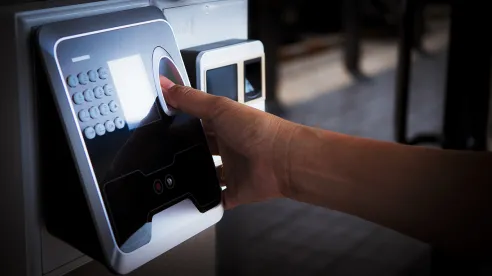On September 17, 2021, in Tims v. Black Horse Carriers Inc., Ill. App. Ct., 1st Dist., No. 1-20-563, the Illinois Appellate Court, in a case of first impression at the appellate level, addressed the statute of limitations under the state’s Biometric Information Privacy Act (“BIPA”), holding that a five-year period applies to BIPA claims that allege the failure to (1) provide notice of the collection of biometric data, (2) take care in storing or transmitting biometric data, or (3) develop a publicly-available retention and destruction schedule for biometric data. The Court also held that a one-year period applies to claims alleging the improper disclosure of, or improper sale, lease, trade or profit from, biometric data.
Defendant Black Horse Carriers and the Illinois Chamber of Commerce, which filed an amicus brief, argued that because BIPA concerns privacy, BIPA claims should be subject to a one-year limitation period, in accordance with 735 ILCS 5/13-201, a separate Illinois statute that sets forth the statute of limitation for claims involving the “publication of matter violating the right of privacy.” The plaintiff, however, argued that 735 ILCS 5/13-205 should govern, which prescribes a five-year limitation period.
In its opinion, the Illinois Appellate Court held that 735 ILCS 5/13-201 does not encompass all privacy actions, but “only those where publication is an element or inherent part of the action.” The Court held that because the improper disclosure or sale of biometric data entails an element of publication, the one-year statute of limitations period applies to such BIPA claims. Conversely, the court held that because the failure to provide written notice of the collection of biometric data, protect biometric data, or develop a retention and destruction schedule of biometric data do not entail an element of publication, such claims are subject to the five-year period prescribed in in 735 ILCS 5/14-205. Because many BIPA claims do not involve an element of publication, the five-year statute of limitations period likely will apply to the majority of BIPA claims that are brought against defendants.
The Tims case has frequently been cited in pending BIPA cases in Illinois as a basis for a stay of litigation while the appellate courts decided the statute of limitations period issue. The Tims decision may not, however, be the final word, as it remains to be seen whether the Supreme Court of Illinois will take up further review of the issue.



 />i
/>i

